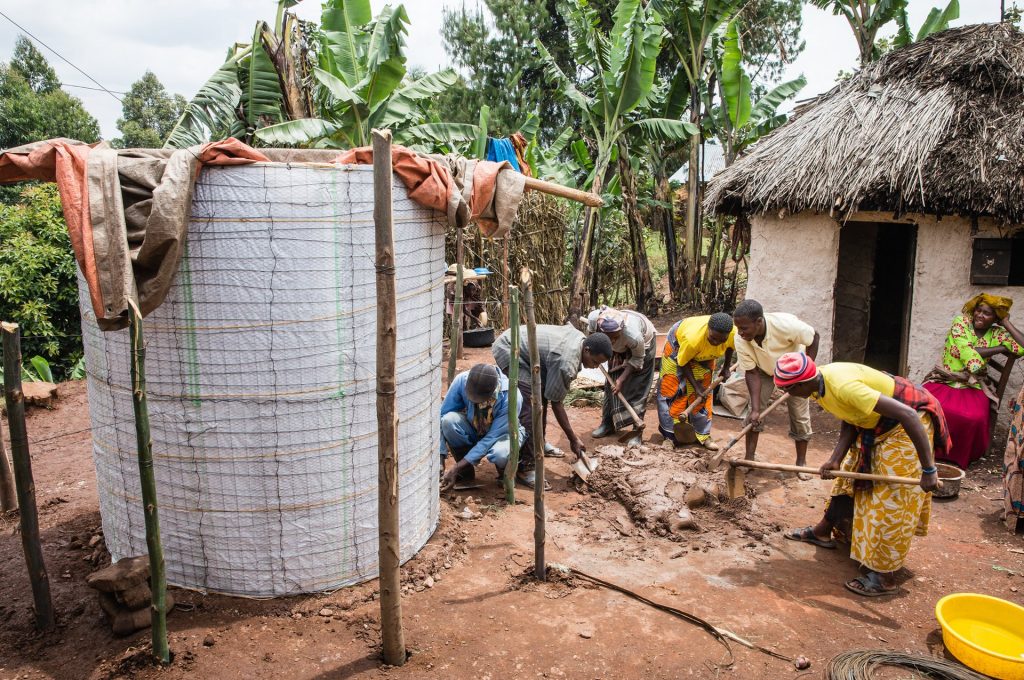In Uganda’s mountainous Kigezi region, safe water is scarce, forcing many children – including sisters Doreen and Jouvllet – to spend hours each day carting supplies up steep terrain. British rowers Richard and Peter Chambers, Olympic silver medallists at London 2012, joined the girls on their daily trek and were overwhelmed by the magnitude of their daily routine
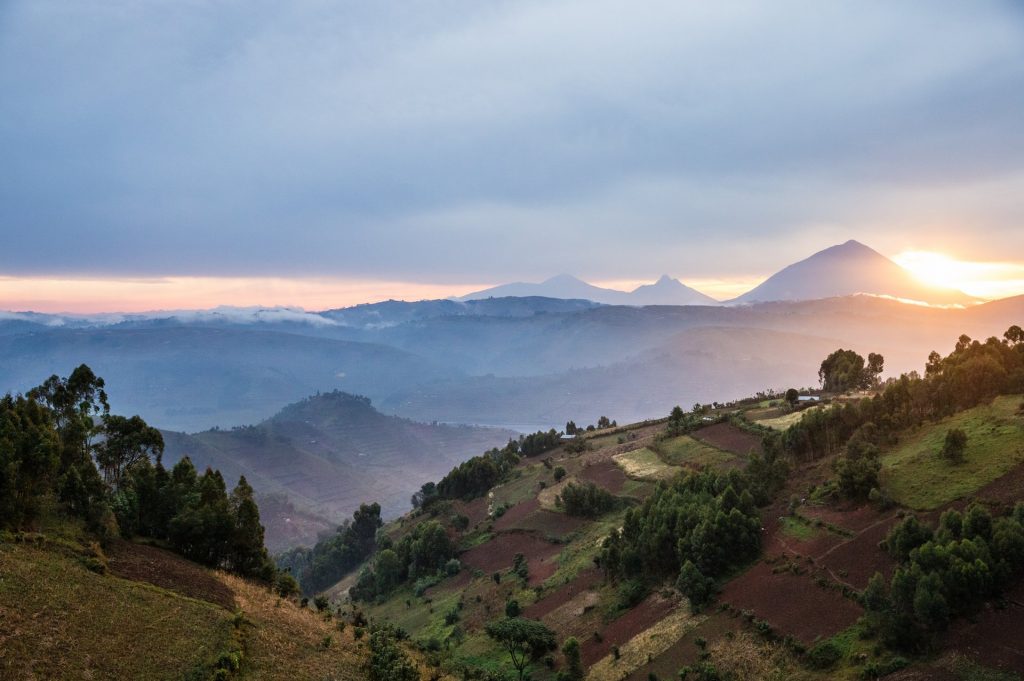
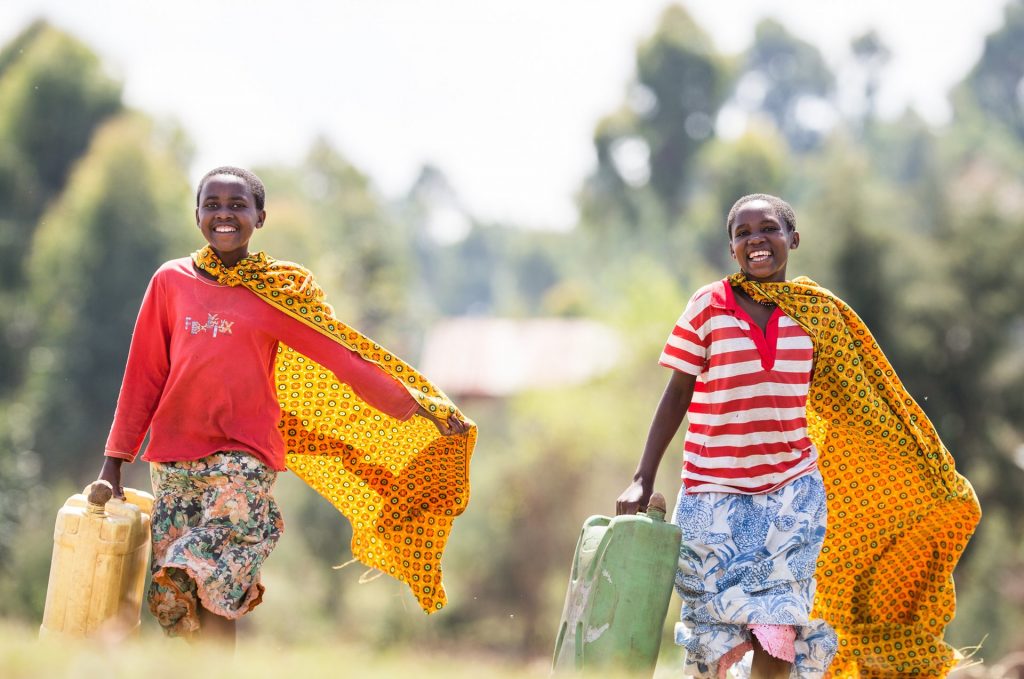
Doreen, 13, and Jouvllet, 12, live in a remote hilltop village in Kabale district. Before and after school, the sisters collect water for the family, a trip that takes about two hours. They first started carrying water in five-litre containers at the age of five. Now they each carry 20 litres of water on a 2km climb twice daily.
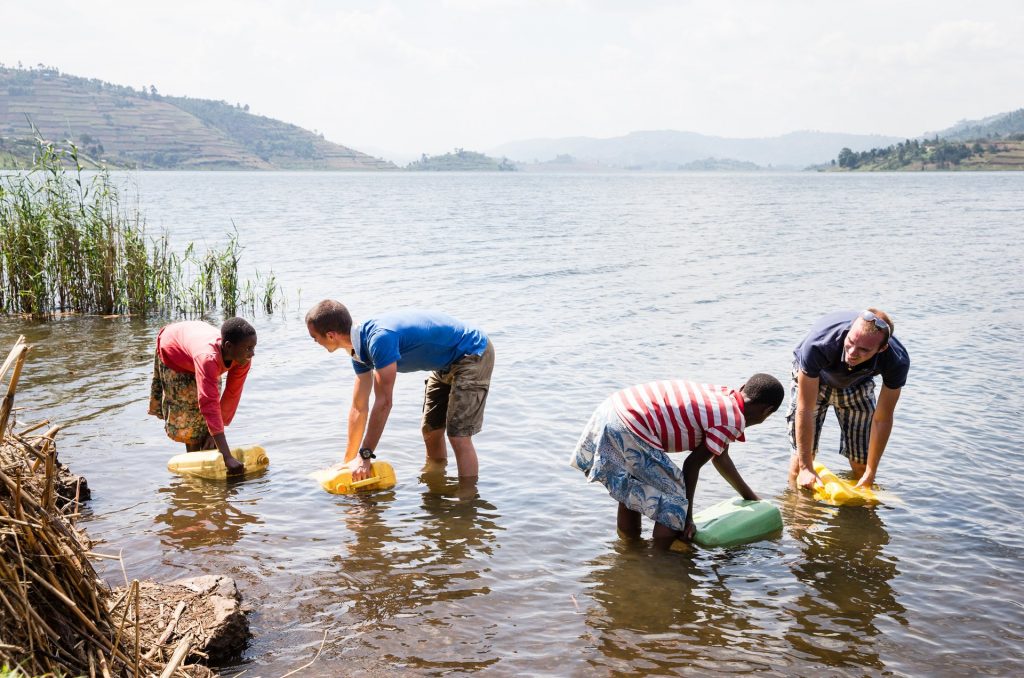
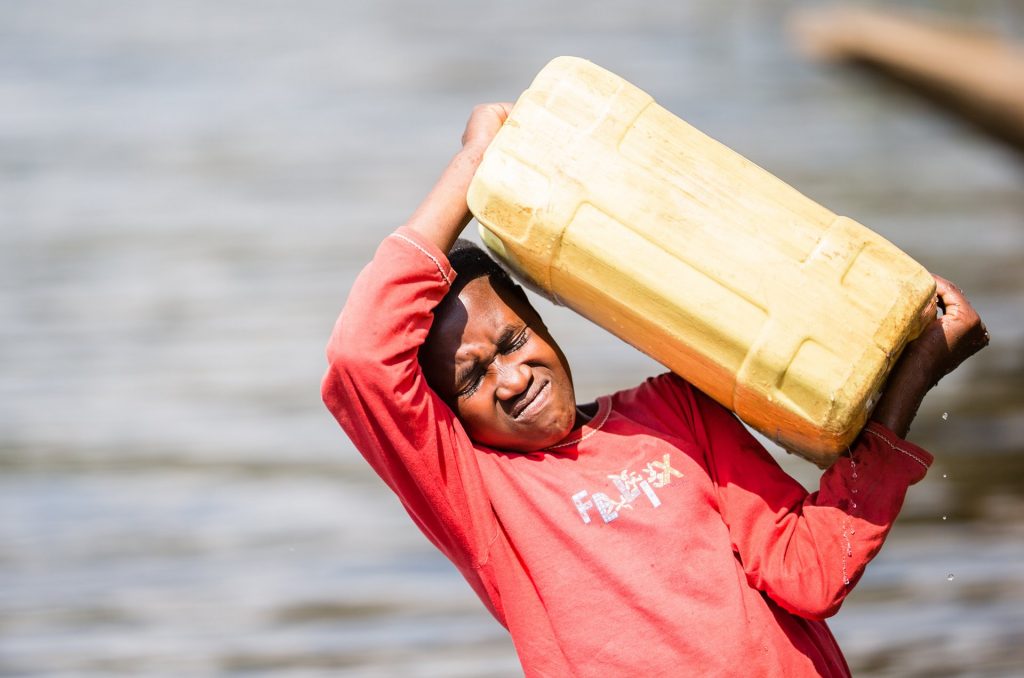
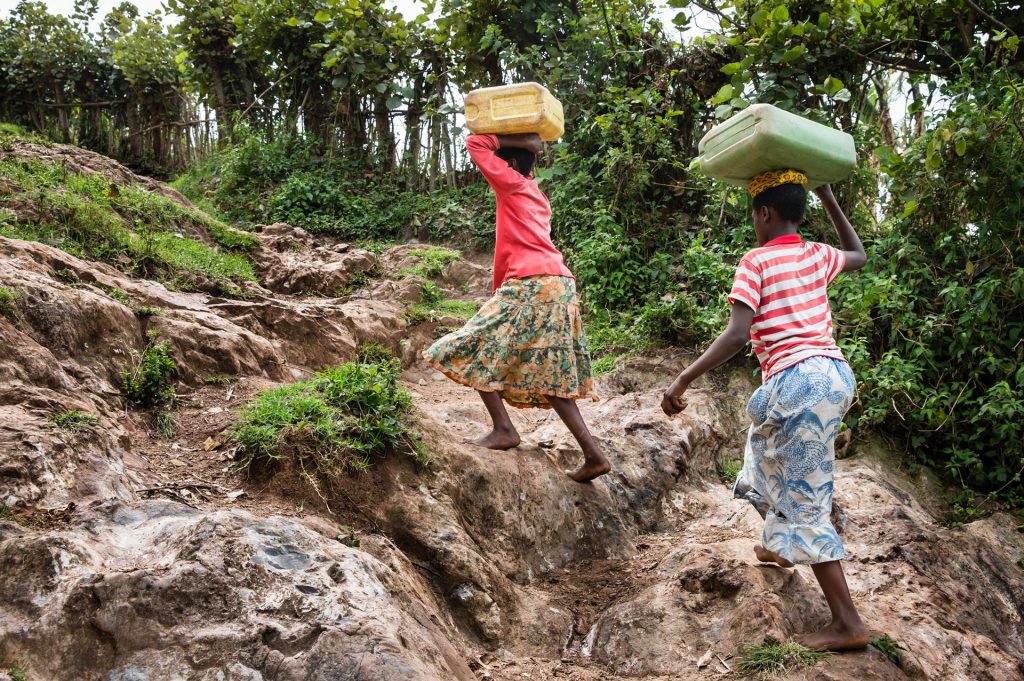
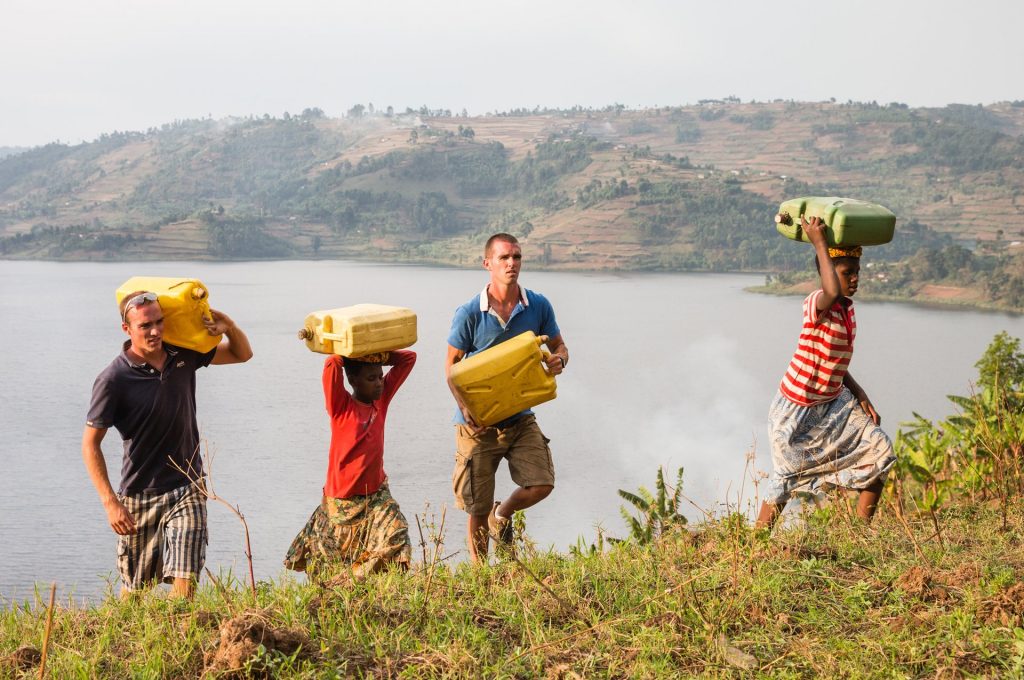
Despite their fitness, the brothers were overwhelmed by the enormity of the girls’ daily routine.
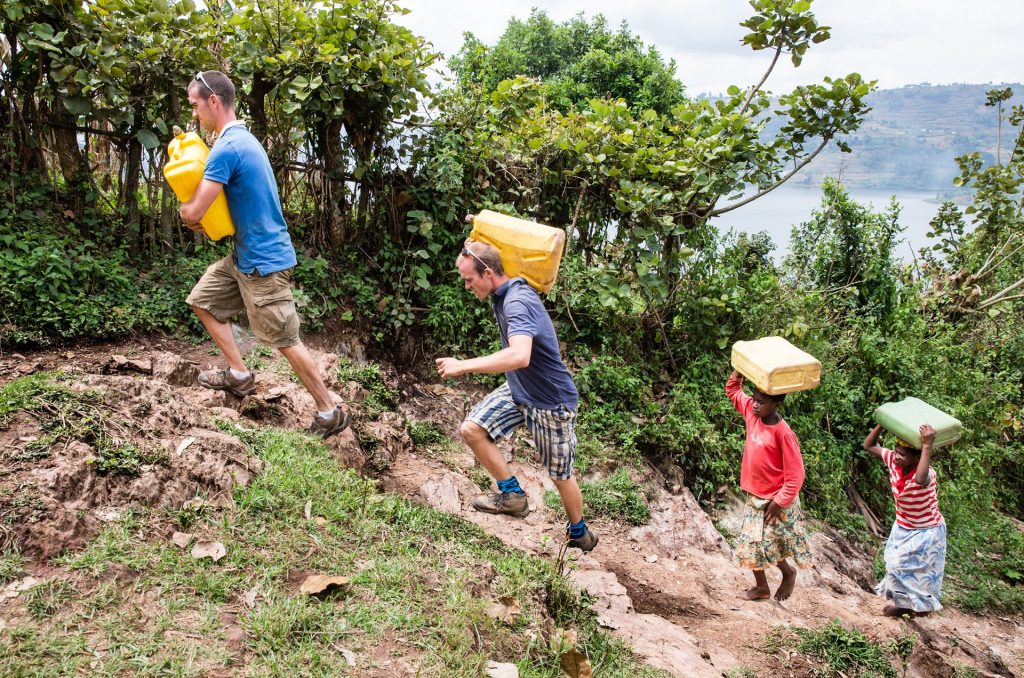
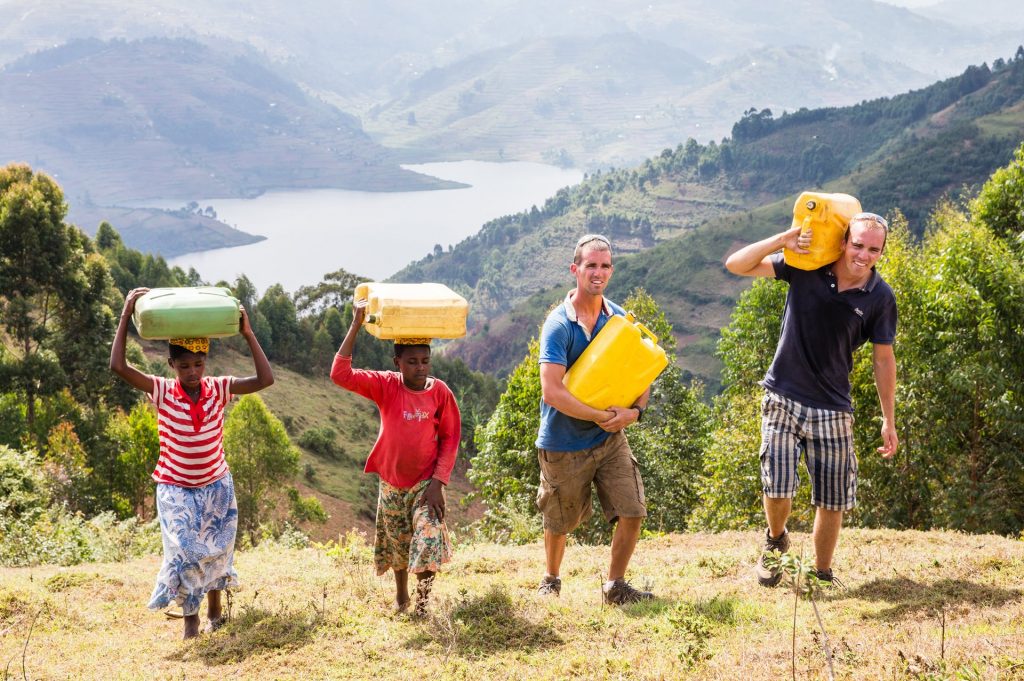
‘For us, as well-trained athletes, to take on that challenge physically was pretty tough,’ said Peter. ‘We work for a short amount of time in our international races but, for the girls, it’s a four-hour slog every day. It’s pretty hard work. For them it’s a physical challenge because they are so young, but it’s also a mental challenge of doing it and repeating it, of doing it all the time’.
